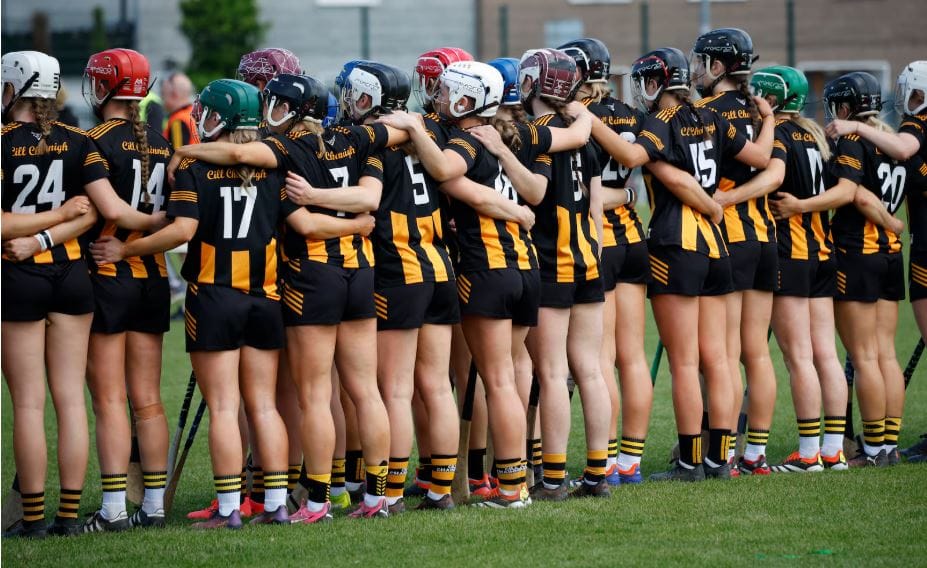Skorting the issues

I distinctly remember my first protest.
Rather fittingly, it was about girls participation in sport. I was in 4th class in school, about 10 years old. We spent the morning doing history and we were learning all about suffrage. I remember the pictures in the book of women protesting and the images of the aftermath when Emily Davison threw herself in front of the kings horse to protest for women's right to vote.

That was an eye opener for me. Initially I remember thinking it must have been an accident, and if not it was a bit drastic....no? It wasn't an accident, that woman was a badass, and she knew that when women seek equality, autonomy and a voice, we don't get it without being loud and entirely disruptive.
That planted a seed in my head. At little break that day, I gathered a few classmates and we decided to protest the fact that the boys refused to let us play football with them. So we made little signs and a drastic plan.
At lunch time we took to the pitch and marched right through their game. One girl stole the ball and booted it high up into a tree. If they weren't going to let us play, they weren't going to play either. It's safe to say, that was the day I was radicalised. I too realised that women and girls are ignored unless we become disruptive.
It's a tale as old as time. Rarely are women's concerns simply heard and dealt with rationally. Take the women of Iceland for example. On October 24th 1975, the women downed tools and went on a 24 hour strike, refusing to work, both inside and outside the home, even refusing to take of their children. Billed as a 'Women's day off', it was designed to demonstrate the value that women add in society. 90% of the nations women participated to protest against the gender pay gap and sexual violence women experience. And it worked. The following year, Iceland legislated for equal pay and equal rights for women.

The need for drastic measures is still there today. While workplaces are far improved, one space where disparity is still apparent, is in sporting organisations. The people at the top are typically men, typically older and typically there for and because of the men's game. Women are just about tolerated, or even sometimes still entirely excluded. When women are tolerated, it's still clear to see they are not the priority. Ambition is held for the men's game, and the women's is a nice add on or a reluctant PR decision.
As a result, when women want their voices heard, they're often silenced, talked over and the decisions are made for them and not with them. Misogyny prevails and is an accepted norm. Behaviours that simply wouldn't be accepted in the corporate world are the status quo in sporting organisations. For women to be heard, they need to resort to drastic decisions. Whether it's 62 present and past players signing a letter of protest, or teams airing their complaints publicly in press conferences, to all out striking, women still need to take drastic measures to simply be allowed to decide what they wear on a pitch or to get the most basic of resources.
What would happen if women had autonomy in these organisations? Would that really be such a terrible thing? Is opportunity a finite resource that men simply can't share, or is it that they can't stand us being in spaces they perceive to be theirs?
“If you post anything, write to your friends or go to social media… we will ban you for life" - Zimbabwe Rugby Union President, Losson Mtongwiza

Whatever the motivation, one thing is clear. Women won't stop until our voices are heard. You can threaten to pull teams from the world cup like the WRU did in Wales, you can threaten to ban players for life as Zimbabwe Rugby Union did, you can exile players and make examples of them like the IRFU, but women won't stop speaking up.
Women will call you out. Women will cause PR nightmares and media uproar. The solution is simple. Allow women their agency without having to demand it. Then we'll let you keep your ball...
Ailbhe O'Nolan
Irish Women's Rugby Supporters Club